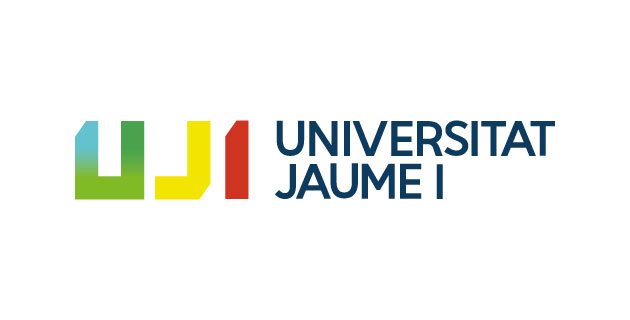ICare project CORE teaches university students how to improve their resilience. Researcher Rocio Herrero explains how this self-applied intervention came to life.
Busy days, filled with coursework, exams, friends, work and social media. The challenges students are confronted with in their daily lives can cause a lot of stress. Research shows that students all over the world struggle with the pressure of being successful in all that’s expected of them. Tiredness is common and burnouts are almost part of the job.

Studies have shown that online interventions can be very effective to treat and avert psychological problems. But these promising interventions are not a standard part of healthcare in many European countries, so for people living in those areas, it’s not always easy to find and receive help. The research project ICare, that receives funding from the European Union’s Horizon 2020 research and innovation programme, wants this to change. Researchers from Germany, Austria, Switzerland, Spain, The United Kingdom and The Netherlands are working together on an innovative model to promote mental healthcare.
The story of CORE
The researchers are working on all sorts of projects to reach this goal. One of those projects is CORE, a self-applied intervention for university students to improve their resilience. The training is based on the six dimensions of psychological wellbeing, a scientifically proven model by American psychologist Carol Ryff.
The purpose of this training is to teach students how to handle uncertainties in life, how to cope with stressful situations and learn new skills to become more resilient. Researcher Rocio Herrero is a postdoc researcher in the University Jaume I in Valencia, Spain. Herrero has always worked on the improvement of psychological treatments through technologies – for ten years this has been her territory. After finishing her PhD, she was invited to participate in ICare. Her job is mainly to help organise and coordinate the trials that her university was involved in for the ICare research in Spain.

How did the pre-work for this project evolve? What kind of information did you use?
“The idea of this research was raised during our work inside the psychological clinic of the University Jaume I. Cristina Botella was the head of the psychological services at the University for over two decades, and she was also the director of the LabPsiTec team (Laboratorio de Psicología y Tecnología, or the Laboratory of Psychology and Technology). I’ve been working for this team for ten years now, and the team saw a constant number of students that came asking for our help. We noticed they were experiencing a high level of stress, especially because of the high number of changes in which they were involved. We took this fact as the start of our research.”
Do students have a lack of resilience?
“What we saw in the many years we have been working at the university is that the students need to face different difficulties. Some related to the challenge of being in the university itself, but also to many other things they need to deal with, like being away from home and getting more autonomy. All of this together constitutes a challenge for them. There is a constant need to develop new skills and students need to be able to cope with all of these challenges. That is asking a lot from them.”
Why is resilience an important theme?
“Resilience for us is the concept that helps us to understand why some people can cope in an adaptive way to a situation that can be stressful or challenging, while others don’t. In other words, once you have faced a challenging situation, you can either become stronger or develop symptoms or even a disorder.”
CORE uses compassion as a way to relate to oneself in a kinder way than we are used to.
How does CORE work?
“CORE is a self-applying intervention. The students can connect to the platform and learn skills that they need to become more resilient. Basically, we developed different modules about subjects that have been pointed out in other studies as key elements to develop resilience. One of the key elements for us, or ‘vitamins’ as they’re called in the training, is the autonomy. The sense of being able to manage your own life, and being able to pursue and achieve your goals.”
It’s about purpose in life. Connecting to your goals in order to use them as a compass.
“Also important are the social connections. We know that the human race is social by definition. We need others. We like to share our successes and sorrows. But we need to decide the type of relationship that we want in our life. CORE uses compassion as a way to relate to oneself in a kinder way than what we are used to. It’s about our purpose in life. So the idea is to help students think about the future and connect to their goals in order to use these goals as a compass for our daily decisions.”
Can you tell a bit more about the research you did, how did participants respond?
“We started to work on CORE about four years ago. We were working on the content for about a year and then we started the trial. So far, around 500 students from Germany, Spain and Switzerland are participating. We don’t have any results yet, because we are finishing the recollection of data. We hope to have data about this in the upcoming months.”
How does your research fit in with what ICare tries to achieve?
“CORE is just a sample of what ICare is. For the whole consortium the key was to focus on those populations that are more in need of help. The goal is to try to create innovative solutions that are easy to apply.”

What’s your idea on development of online interventions and prevention in the next few years?
“I think that so far we know that interventions delivered through online platforms are effective. The question is if the new tools that technologies bring us can be incorporated to increase effectiveness. For example, by making the intervention more personalised, more intelligent in its responses or by a better tracking of the positive change people make during the course of the intervention.”
What do you hope to achieve with CORE?
“Our idea is to disseminate the intervention in different universities from different countries. We think that it is important to create these kinds of tools to promote wellbeing and resilience among students. Hopefully we can teach them how to handle all of the challenges they face during their time at university.”
Want to know more?
CORE isn’t the only project in ICare. There is more to read and learn. We recommend the interview we had with Ina Beintner, about the prevention of eating disorders with the project everyBody.
Or find out more about the research projects Minddistrict is involved in on our research pages.
